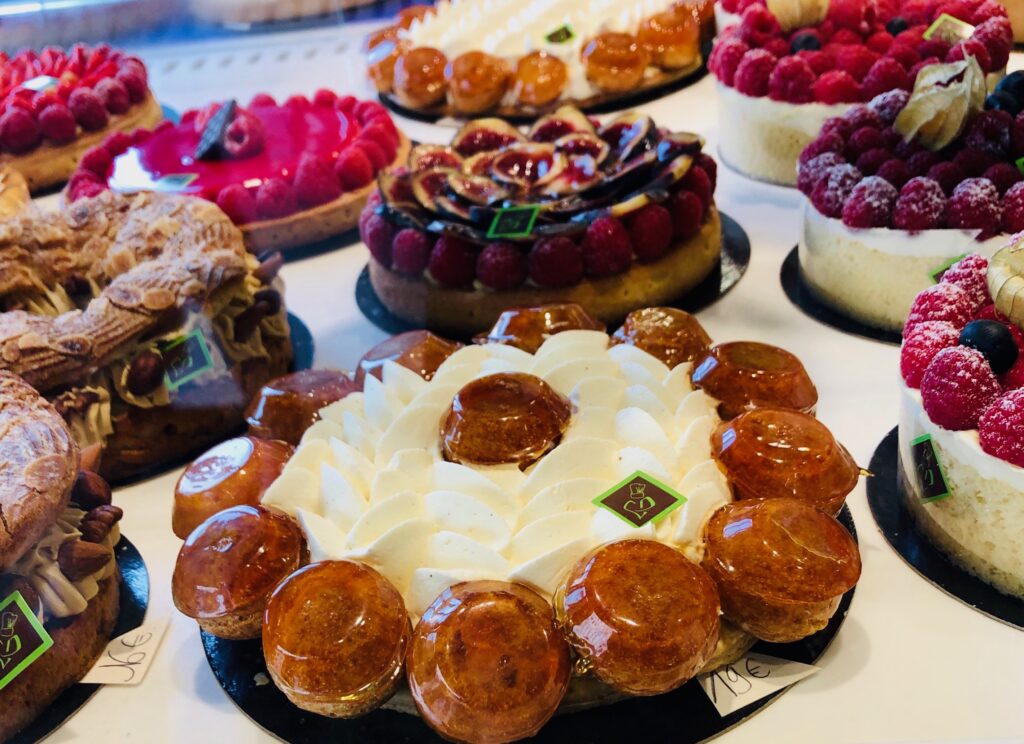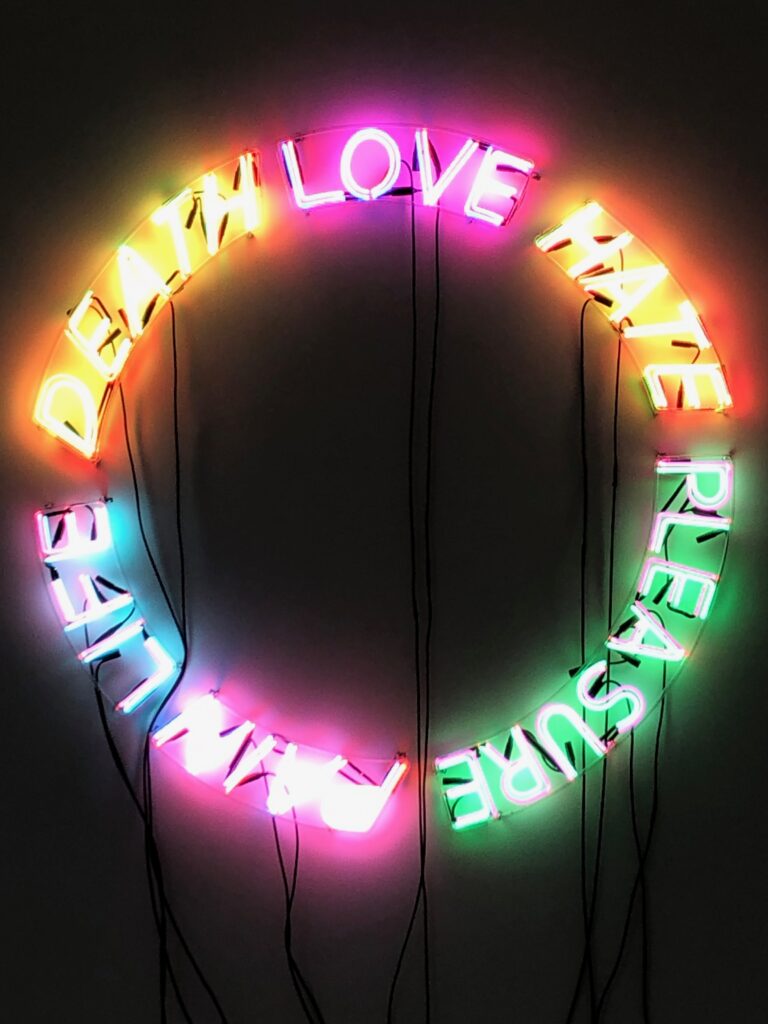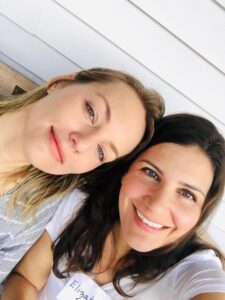 The kids and I binge watched “Zumbo’s Just Desserts” over the interminable summer of the pandemic. One of the contestants who lost straightaway stuck in my head. He was an older guy, who had loved to bake his whole life. When he was younger and choosing a career, he didn’t consider pursuing pastry even though it had brought him so much joy. It wasn’t practical. So he went into sales. All the years into that decision were etched on his face—eyes at half mast, a sickly pallor to his skin and a demeanor plagued by timidity. Having chosen a life he never wanted had cost him. He was so nervous during the competition that he screwed everything up and was eliminated. A lifetime ago, he knew in his bones what he really wanted and he ignored it. What if he’d been such an extraordinary pastry chef that he’d become a household name and made a fortune? He never gave himself the chance.
The kids and I binge watched “Zumbo’s Just Desserts” over the interminable summer of the pandemic. One of the contestants who lost straightaway stuck in my head. He was an older guy, who had loved to bake his whole life. When he was younger and choosing a career, he didn’t consider pursuing pastry even though it had brought him so much joy. It wasn’t practical. So he went into sales. All the years into that decision were etched on his face—eyes at half mast, a sickly pallor to his skin and a demeanor plagued by timidity. Having chosen a life he never wanted had cost him. He was so nervous during the competition that he screwed everything up and was eliminated. A lifetime ago, he knew in his bones what he really wanted and he ignored it. What if he’d been such an extraordinary pastry chef that he’d become a household name and made a fortune? He never gave himself the chance.
We spend gobs of time pondering what we “should” do, imagining what people will think, projecting the judgment of others back onto ourselves. We go from one accomplishment to the next, assuming we will be well-regarded and fulfilled once we have ticked off our list of approved goals. This hamster wheel has no end in sight until we spend some time with the truth of who we are, underneath all the false measures of our worth. When we know ourselves, we know what we want and we can make a plan to get it.
None of us comes to this earth to gain our worth, we bring it with us.
So how do we get back to the truth of who we really are? We get to know ourselves again by engaging the subconscious—it’s all in there. And it’s way more accessible than we think. One way to do that is to keep a daily journal. Writing without judgment, just putting it all down on the page, one little bit at a time. The benefits of adopting this practice are many. Let’s break it down so you know what you’ll get if I can convince you to take pen to paper and let your mind do it’s thing.

We write to let the sun in, to banish the darkness, to shed burdens and lighten ourselves. We write to be free.
1. Through writing we get clarity.
When we let our subconscious choose what to write about, our priorities become clear. Underneath all the noise lie our hopes and dreams. When we articulate them, the next step is to make a plan and execute on it.
When I first started writing, I was so intimidated by the blank page, I froze. Beginning with writing prompts was the perfect way in. It’s a simple tool to get you going and might even take you in a totally different direction. But it’s not like art class where you are supposed to sketch the flower in a vase or you get an F. The prompt is a mere suggestion. Where you go with it is your call. When I write in the morning, forgotten intentions come out. I write notes to myself in the margin so I remember to follow up on an idea, chase down a contact, etc. Writing brings my focus back to what’s important to me.
When we tell the truth, we create the possibility for more truth around us.
2. Finding your truth.
Many of us have family and relationship drama that occupies valuable space in our heads. And it’s not just the time and energy it consumes, it also messes with our sense of self. Family narratives around incidents may conflict with what was actually true for each of us. Even siblings experience the same parents in conflicting ways. The important bit to extract is our own truth, regardless of someone else’s version. When we write down what is true for us, not only do we benefit, but we also bring healing to the world.
I write entirely to find out what I’m thinking, what I’m looking at, what I see and what it means. What I want and what I fear. Joan Didion
 3. Getting in touch with our true feelings.
3. Getting in touch with our true feelings.
When we use writing to explore our subconscious mind, we increase our capacity for insight into ourselves and understand our reactions to current triggers more fully. For a long time, I was in survival mode, just hoping to get through the difficulty and avoid my emotions. Going back and fully exploring what happened and how it made me feel, put me back in touch with feelings I had buried. In large measure, putting those feelings on the page liberated me from them. I have more sensitivity and insight into my own life than ever before. Having a place for unexpressed emotions has served as a stress-reliever. There is a lightness I never thought possible. I cannot recommend this highly enough.
4. Building our own intuition.
The more time we take to listen to our own voice, the better we know ourselves. We gain wisdom and insight into our own motivations. We trust ourselves more. Our instincts sharpen. Our self-awareness grows. What could be better?
Accept what is. Let go of what was. Believe in what will be.
5. We can consciously choose an empowered meaning to our personal stories. We are the ones who decide what to focus on as we write. We get to say why something happened the way it did and the significance. I’m not suggesting we should make up a bunch of hooey to be the hero of our story—that serves no one. What we can do is reflect on what we gained and extract an empowered meaning from the hard times. That makes all the difference.
Being on the other side of this concept is a beautiful thing. After I wrote my book, I got to see that the hardship I experienced brought me to where I need to be. I used my writing not just to replay events but to understand them. I now appreciate my own resourcefulness. I realize that everything I am comes from all I have been through and I honor both the good and the bad.
6. When we get negative emotions out, assign an empowered meaning to our lives and integrate our own personal stories into who we are today, we feel better. Mountains of research shows the benefits of expressive writing to increase self-esteem and to heal physically and emotionally. There are clear connections between expressing emotions and enjoying good health.
7. We write to recognize our limiting beliefs.
We have all had experiences that end up placing limits on us in one way or another. The end result is that we believe we cannot do certain things before we even try. For me, I concluded early that I couldn’t have close friendships because people would judge me if they really knew me. My hippie family did everything differently so I kept friends at arm’s length to avoid their scrutiny. Unless we take the opportunity to examine these beliefs, we don’t ever question whether or not they are actually true. Lucky for me, I questioned this belief somewhere along the way in my writing. The real truth is that the more I share of myself, the deeper the connections between me and my friends and family. I invite you to think about all the things you believe you can’t do and ask yourself why you’ve reached that conclusion. You may be surprised.


Protect the time and space in which you write. Keep everybody away from it, even the people who are most important to you. Zadie Smith
So here’s how to get started. You have a lot of options but the optimal time to journal is when you have quiet moment and a comfortable place to write. I do it right after meditation in the morning before anyone’s up. You can even light a candle and make the space comfy. I prefer to fill three full pages but even if you only do a few minutes a day, say fifteen, three or four days a week, it’s effective. The key is not to edit as you go. This exercise allows you access to your true feelings and if you censor yourself, you will undo that valuable work. No editing, no judgment for grammar or spelling errors. Rereading should be left for later and never before the next session.
So. Take a risk and get to know yourself on the page. I promise, it’s going to be okay.
Love,
Elizabeth
Writing Prompt: Explore a memory. What lingers with you the most? How has this experience changed you? How are you seeing your resilience through this experience? Who do you wish you could share it with? (It’s okay if its just for you.)
3 replies on “What do you really want?”
Yes the world can be so heavy…
always wanting to be in lightness.
So I guess we write to find the light and lightness in ourselves!!
Beautiful work❣️❣️❣️
?
I truly love what you wrote Elizabeth.
Thank you for sharing your personal growth and experience.
You are able to encourage people to do a practice without any “shoulds “ or judgements of themselves for how they do it and what comes out . You do just enough self disclosure to make yourself real but not make it about you in any way. Beautiful prompt !